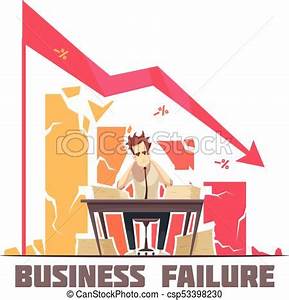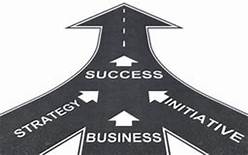14 Reasons why Startups / Small Business Fail and 14 To Do’s for Success
“The important thing is not being afraid to take a chance. Remember, the greatest failure is to not try. Once you find something you love to do, be the best at doing it.”– Mrs Debbi Fields (Cookies)
Topics: A. Why Biz Fail: Plan’g, Mgt, Leader, Partner, Capital, Finan Mgt, Profit, Cust, Diff Prod’s, Focus, Scaling, Macro Eco. B. How to Succeed: Biz Plan, Exec Sumry, C. Other Factors: Focus, SWOT, Mentor, Patience, Fail, Adjust.
Why so many Businesses fail – while so few succeed?

One of the great mysteries of entrepreneurship is why businesses fail. Some people start one successful business after another while others fail to succeed. The worst part about a failing business sometimes is, that the entrepreneur is unaware of it happening until it is often too late. It makes sense because – if the entrepreneur really knew what he was doing wrong – he might have been able to save the business. Some entrepreneurs live on the River of De-Nile – while others are unaware of their mistakes.
The Founder/s. Flounder
There are over 28 million Startups & Small businesses in the USA. The sad reality is that only about 50% of them survive for 5 years. What’s worse is that only about 1/3 survive 10 years or more. The life of an Founder / Owner is unforgiving. It is a constant challenge. There are many dynamic situation. Any one of them could put you out of business. Businesses fail for many reasons. The following list includes some of the most common reasons:
A. Most common reasons Businesses Fail
1 – Lack of Planning –short and long-term. Your Business Plan should include where your business will be in the next few months to the next few years with SMART goals. The right plan will include specific To-Do Lists with dates & milestones. “Failure to Plan is Planning to Fail”. Have a monthly meeting to look at where you are and plan what to do next.
2 – Poor Management –inability to listen, micro-managing – AKA lack of trust, working without standards or systems, poor communication, and lack of feedback.
3 – Leadership Failure –The leadership must be able to make the right decisions most of the time. From financial to employee management, leadership failures will trickle down to every aspect of your business. The most successful entrepreneurs learn, study, & reach out to Mentors to improve their leadership skills.
4 – Wrong Partner – It’s no secret that it is easier to succeed in business with the right partners. The wrong business partner will, at the very least hurt, or, at worst, destroy your company.
5 – Lack of Capital – which can lead to the inability to attract investors. Business might not be able to pay its bills, loan, or other financial commitments. Lack of capital makes it difficult to grow the business and it may jeopardize day-to-day operations.
6 – Poor Financial Management – Use a professional accounting software like Quickbooks. Keep records of all financial records and always make decisions based on the info you get from real data. Know where you stand all the time. If numbers are not your thing, hire a financial professional to explain and train you to understand at -least the basics.
7 – Lack of Profit –As an Founder/Owner, you must keep your eyes on profitability at all times. Profit allows you growth. According to Small Business Trends, only 40% of small businesses are profitable, 30% break even, and 30% are losing money.
8 – Ignoring Customer Needs – Every business will tell you that the Customer is #1, but only a small % acts that way. Businesses that fail, lose touch with their customers. Keep an eye on the trending values of your customers. Find out if they still love your products. Do they want new features? Ask them, then listen.
9 – No Product Differentiation – It is not enough to have a great product. You also have to develop a Unique Value Proposition. Without this you will get lost among the competition. What sets your business apart from the competition? What makes your business unique? It is important that you understand what your competitors do better than you. If you fail to “differentiate”, you will fail to “Build a Brand”.
10 – Lack of Focus – Without focus, your business will lose it the competitive edge. It is impossible to have a broad strategy on a startup budget. What makes startups succeed is their ability to quickly change, and the lack of focus leads to the inability to make the necessary adjustments.
11 – Inability to Learn from Failure – We all know that failure is usually bad, yet it is rare that businesses learn from failure. Realistically, businesses that fail, fail for multiple reasons. Often entrepreneurs are oblivious about their mistakes. Do an analysis, then initiate Corrective Action.
12 – Pre-mature Scaling – If you scale your business pre-maturely, you could destroy it. For example, you could: get a large facility you done need yet, hiring too many people -too quickly, or spend too much on marketing, attacking the wrong target.
13 – Over Expansion – It is easy to make the mistake of expanding your business into too many verticals. Before you enter new markets make sure you maximize your existing market.
17 – No Succession Plan – Future leaders should be identified in advance. Without an effective succession plan, your business is unprepared to fill openings in created by retirements, unexpected departures, or death. Review every 6-12 months.
14 – MacroEconomic factors – Founders can’t control macro-economic factors. Common factors are business cycles, recessions, wars, natural disasters, inflation, & business cycles. Your business can still succeed in bad times. Hyatt, Burger King, FedEx, Microsoft, CNN, MTV, Trader Joe’s, GE, HP are only a few examples of wildly successful companies started during a tough economy.
B. Road to Success
 PLAN + Exec Sumry
PLAN + Exec Sumry
1. Make a Business Plan – It all begins with planning. The biggest mistake many Founders make as they start their ventures is that they don’t sit down and write a Business Plan. The goal is to keep it simple & concise. A Business Plan in one or two pages. Do an Executive Summary. Wiz4.biz can help you. Otherwise, research Books on Biz Plans.
2. Executive Summary of Business Plan Components
- Mission Statement
- Company Description
- Product Description
- Market Analysis
- Marketing Strategy
- Revenue Projections
3. an Executive Summary should include: (Components)
Mission Statement –that defines why your company exists. It describes your Target Market and the services/products you offer. Your Mission Statement will communicate the purpose of your business to the world.
Core Values –are the fundamental beliefs that drive your business. They are your guiding principles that should remain constant. Even as your company grows, your Core Values should remain the same. CV can also serve as a moral compass. Some of the more common CVs are integrity, trust, excellence, respect, responsibility, & teamwork.
Don’t allow your Core Values to become empty words; make them part of your culture.
What is your Product/Service –to effectively develop, market, and sell your Product/Services.
Who are your Customers –a clear definition of your Target Market by demographics / statistics. Is it growing?
Involve your Customers in Product Development – In effect, to build your products/services with your customers. Let them test it and provide you feedback. Make the changes you think are needed, then re-test – until you are both happy.
How will you Market your Product / Service ? – A Marketing Plan is a “must”, to reach your Target Market. Set SMART Goals. Review monthly
Help? Wiz4.biz can help you with your Executive Summary
C. Other Factors for Success in Business
1 – Focus on your Customer – “Your Customer is your Boss. He keeps you in business puts you out of business” Sam Walton. If you listen to them, you can improve your products or services. If you ignore they could fire you. Customers don’t disappear, they go to your competitors. Reach out to your customers. Ask them questions. Ask what they’d like or dislike. Welcome even (-)feedback. It gives you a chance to improve.
2 – Do a SWOT Analysis: Strengths of your Biz & P/S, Weakness of the Competition, Opportunities for growth in the Target Market, Threats – how easy would it be to steal you idea
3 – Get a Mentor. . . who’s started 1 or more Biz & succeeded. There are many successful Entrepreneurs within your own existing network, and you can also make new connections. Connecting with mentors helps you hear what it takes to be an entrepreneur.
4 – Have Patience – Ideas are a fast-flowing stream, but making them happen takes time. Even if all goes well, almost everything you do in business will take longer than you expected.
5 – Prepare to Fail – Do not fear failure. It’s almost a sure thing, You will probably fail before you succeed. Edison failed 10,000 times before he succeeded. Think of it as a normal part of your business. Bill Gates said: “I learn more from failure”. It is good for your business. It teaches you. It helps you make the right decision the next time.
6– Adjust to Product Changes & Test [Repeat] – Successful entrepreneurs are always adjusting. There are many reasons to adjust. Your customers might ask for a new feature. Your business & its environment are dynamic. If you are good, you develop a keen eye for change and make quick adjustments. Most businesses that fail – do so because they ignore the world changing around them. It took Henry Ford from Model A to Model T to get it right. That’s almost 20 iterations.
7 – If you expect to be a Success in business, you must figure out how to deal with the unexpected. It’s not that “what if it happens“, but “when it happens“. What if your best salesperson quits tomorrow? How long before you will replace her? Do you have a system in place, so when you hire a replacement she can sell?
Our Conclusion for Success
Few places are less forgiving than the business world. Eventually, everything adds up. If your customers prefer your competitors, your employees would rather work for someone else, your partners no longer believe in each other or the business, and the many mistakes you can make along the way. And that is why businesses fail.
Comment: Do you have any other reasons why Startups fail and what we can do about it?
from Success Harbor 9/19 enhanced by Peter/CXO Wiz4.biz
For more Info, click on Success.
